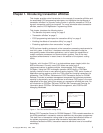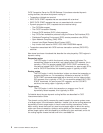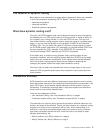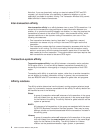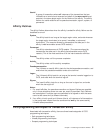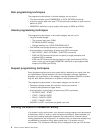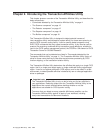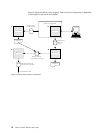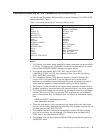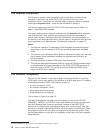
Userid
A group of transactions where all instances of the transactions that are
initiated from a terminal and executed on behalf of the same userid must
execute in the same target region for the lifetime of the affinity. The affinity
lifetime for userid relations can be pseudoconversation, signon, system, or
permanent.
Affinity lifetimes
The affinity lifetime determines when the affinity is ended.An affinity lifetime can be
classified as one of:
System
The affinity lasts for as long as the target region exists, and ends whenever
the target region terminates (at a normal, immediate, or abnormal
termination). (The resource shared by transactions that take part in the
affinity is not recoverable across CICS restarts.)
Permanent
The affinity extends across all CICS restarts. (The resource shared by
transactions that take part in the affinity is recoverable across CICS
restarts.) This is the most restrictive of all the inter-transaction affinities.
Process
The affinity exists until the process completes.
Activity
The affinity exists until the activity completes.
Pseudoconversation
The (LUname or userid) affinity lasts for the whole pseudoconversation, and
ends when the pseudoconversation ends at the terminal.
Logon
The (LUname) affinity lasts for as long as the terminal remains logged on to
CICS, and ends when the terminal logs off.
Signon
The (userid) affinity lasts for as long as the user is signed on, and ends
when the user signs off.
Notes:
1. For userid affinities, the pseudoconversation and signon lifetimes are possible
only in those situations where one user per userid is permitted. Such lifetimes
are meaningless if multiple users are permitted to be signed on with the same
userid at the same time (at different terminals).
2. If an affinity is both userid and LUname (that is, all instances of all transactions
in the group were initiated from the same terminal and by the same userid),
LUname takes precedence.
CICS programming techniques for transaction affinity
Associated with transaction affinity, there are three broad categories of CICS
programming techniques:
v Safe programming techniques
v Unsafe programming techniques
v Suspect programming techniques
Chapter 1. Introducing transaction affinities 5
|
|
|
|
|
|
|







